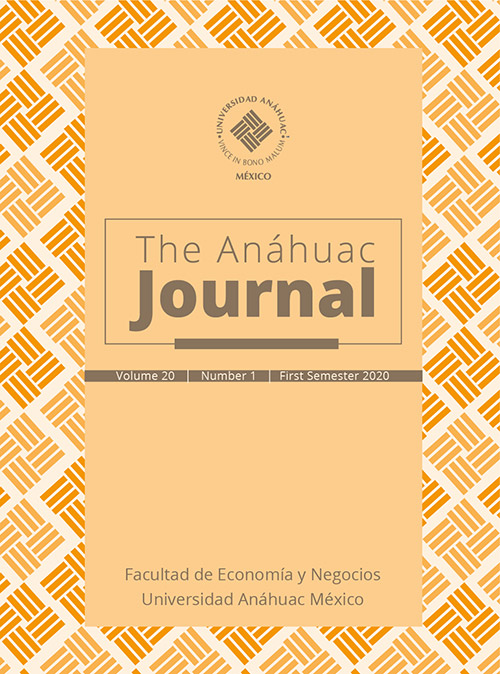DISCUSSION BETWEEN ENERGY AVAILABILITY AND ENVIRONMENTAL SUSTAINABILITY IN THE UNITED STATES, 1980-2016
Main Article Content
Abstract
The core of the discussion for Energy Security (ES) has been the oil market, however, the inclusion of environmental issues has led to a complex analysis of the strategies to be implemented to guarantee ES, especially for countries with high consumption of fossils and few or not oil reserves like the United States. The document proposes three indexes — oil, diversification and environmental — to evaluate the US SE between 1980 and 2016. The document concludes that
according to the current SE vision, improvements in the SE can only be obtained if there is an increase in renewable energies, because the increase in the consumption of fossil fuels (especially gas) does not allow a transition to a holistic SE vision.
Downloads
PLUMX Metrics
Article Details
This work is licensed under a Creative Commons Atribución-NoComercial-CompartirIgual 4.0 Internacional.
References
Nueva sociedad, (244): 61-73.
British Petroleum, BP (2019). Statistical Review of World Energy 2019 (68a .ed.), https://
www.bp.com/content/dam/bp/business-sites/en/global/corporate/pdfs/energyeconomics/
statistical-review/bp-stats-review-2019-full-report.pdf
Cheng, I.-H. y Xiong, W. (2013). «The Financialization of Commodity Markets».
Presentado en la Annual Review of Financial Economics, octubre.
Cherp, A. y Jewell, J. (2014). «The concept of energy security: Beyond the four As».
Energy Policy, 75: 415-421. https://doi.org/10.1016/j.enpol.2014.09.005
Enerdata (2019). Global Energy Statistical Yearbook. https://yearbook.enerdata.net/
Energy Information Administration (2019), Short Term Energy Outlook, EIA. https://
www.eia.gov/outlooks/steo/outlook.php
Federal Reserve Bank of St. Louis (2018). Inflation, consumer prices for the United
States. Recuperado el 18 de diciembre de 2018 de: https://fred.stlouisfed.org/
series/FPCPITOTLZGUSA
Global Carbon Atlas (2020). Fossil fuels emissions. http://www.globalcarbonatlas.org/
en/CO2-emissions
Global Energy Institute (2019). Index of U.S. Energy Security Risk, Addressing
America’s Vulnerabilities in a Global Energy Market. EEUU: Global Energy Institute,
Chamber of Commerce.
Hamilton, J. (2008). «Understanding crude oil prices», Working Paper 14492.
International Energy Agency, IEA (2011a). The IEA Model of Short-term Energy Security
(MOSES) Primary Energy Sources and Secondary Fuels, IEA/ OECD.
International Energy Agency, IEA (2011b). «Energy security. Ensuring the uninterrupted
availability of energy sources at an affordable price». IEA. Recuperado
el 20 de febrero de 2020 de: https://www.iea.org/areas-of-work/ensuringenergy-
security
International Energy Agency, IEA (2019). “Energy Security. Reliable, affordable access
to all fuels and energy sources”. IEA. Recuperado el 7 de mayo de en: https://
www.iea.org/topics/energysecurity/
Kim, B. (2015). «A New Method of Using Energy Security Risk as a Decision-Making
Tool». Journal of Science Policy & Governance. Vol. 6 (1).
Kobek, M. L. P., Ugarte, A. y Aguilar, G. C. (2015). «Shale gas in the United States:
transforming energy security in the twenty-first century». Norteamérica, 10 (1):
7-38. https://doi.org/10.20999/nam.2015.a001
Krane, J y Medlock, K. B. (2018). «Geopolitical dimensions of US oil security». Energy
Policy, vol. 114: 558-565.
Naciones Unidas (2015). Objetivos de Desarrollo Sostenible. Recuperado el 20 de
diciembre de 2019 de: https://www.un.org/sustainabledevelopment/es/
National Security Council (1979). Memorandum from Director of Central Intelligence
Turner to the President’s Assistant for National Security Affairs (Brzezinski). Recuperado
el 2 de octubre de 2018 de http://history.state.gov/historicaldocuments/
frus1969-76v37/d240
Pandey, A. (2018). «Energy: A Basic Human Right», Energy Monitor. https://www.
geopoliticalmonitor.com/energy-a-basic-human-right/
Puyana, A. (2015). La economía petrolera en un mercado politizado y global. México y
Colombia. México: FLACSO.
Puyana A. y Rodríguez E. (2019). «Seguridad energética. ¿Un objetivo lograble? La trayectoria
en México, Estados Unidos y Canadá de 1980 al 2016» (en dictaminación).
Sampson, A. (1975). The Seven Sisters: The Great Oil Companies and the World They
Shaped. Nueva York: Bantam.
Sovacool, B. K. (2013). «An international assessment of energy security performance».
Ecological Economics, 88: 148-158.
Sovacool, B. K. y Mukherjee, I. (2011). «Conceptualizing and measuring energy security:
A synthesized approach». Energy, 36 (8): 5343-5355.
Winzer, C. (2012). «Conceptualizing energy security». Energy Policy, vol. 46: 36-48.
World Energy Council (2007). «Energy and Climate Change World». Reino Unido:
Energy Council.
Yergin, D. (1991). The Prize: The Epic Quest for Oil, Money & Power. Nueva York, Londres,
Toronto: Free Press.

